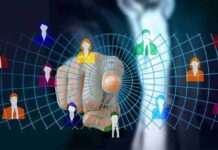
Artificial intelligence is often misunderstood. For example, the thought of AI becoming widespread in almost all careers has led to concerns about its effects on jobs and human interactions.
Where does this misconception come from? In the months following ChatGPT’s launch, the development and the public use of generative AI accelerated dramatically. This rapid evolution has not only reshaped the business landscape but has also fundamentally transformed the job market across diverse sectors such as manufacturing, banking, insurance, healthcare, and retail.
Roles that once relied on manual labor now demand advanced technical proficiency, necessitating skills in programming, data analysis, and beyond. Hence, companies are now looking to empower their workforce through robust upskilling initiatives to maintain competitiveness amidst this dynamic shift.
Let’s look into the multifaceted impact of AI on the future of work, examining its implications on the workforce, and strategies for adapting to these transformative changes.
How is AI reshaping the nature of work?
AI is transforming the nature of work across the world. It could boost efficiency across sectors such as manufacturing, retail, banking, and healthcare and evolve how businesses and organizations of all types are built and run.
To begin with, we could expect a significant shift where machines will take on the role of co-workers with their AI-based capabilities.
This shift suggests a new era where humans and machines coexist collaboratively, ushering in an era where humans can apply their creativity and innovative muscles on a day-to-day basis, leaving repetitive tasks for AI-based co-workers to handle.
Hence, we can expect to see a significant rise in the demand for social, emotional, and higher cognitive skills, such as creativity, and critical thinking, by the end of this decade.
On the other hand, automation will also accelerate the shift in skills required in the workforce. After all, in order to work with technologically manufactured co-workers, humans will have to level up as well. Hence, we can expect to see a rise in the demand for advanced technological skills such as programming.
Apart from the shift in skills, generative AI will enable accessibility to personalized and applied learning both within and outside the workplace. This includes adaptive learning systems that adjust the pace and content based on the learner’s progress and real-time feedback mechanisms that provide immediate insights and corrections.
Moreover, generative AI can utilize vast amounts of data to create personalized learning paths that extend beyond traditional educational settings.
The impact of AI on the rise of remote work has also been significant. Over 20% of the workforce, globally, is equipped with the right tools to work remotely or on a hybrid model.
This is made possible with AI-based advanced tools such as virtual assistants, chatbots, and workforce management systems. It has also enhanced productivity by providing real-time data analysis and facilitating remote team coordination.
Embracing AI presents a tremendous opportunity to positively impact the world of work. It allows for the enhancement of skills and efficiency, positioning people for success in an ever-evolving workplace landscape.
How to prepare for the transformation?
Globally, about 42% of enterprise-scale companies report having actively deployed AI in their business. An additional 40% are currently exploring or experimenting with AI but have not deployed their models. In India, however, 59% of enterprises have actively deployed AI, the highest amongst other larger economies.
This rate of adoption would not be possible if AI was a genuine threat to people’s livelihoods. Instead of buying into the ongoing discourse about AI, businesses need to shift their focus on ways to ensure that the workforce transitions are as smooth as possible.
Achieving this calls for actionable solutions in several key areas. Leaders will have to make an active effort to understand how AI will impact their workforce and plan out the subsequent transition. For instance, companies could introduce initiatives to upskill their employees to prepare them for the changing nature of work.
Are our jobs safe?
Existing technologies can fully automate only about 5% of occupations across various industries. In fact, roles linked to AI, such as data scientists, big data specialists, and business intelligence analysts, are expected to grow by 30 to 35%. Generative AI, in this case, will only create new job openings, while also enhancing the nature of the jobs we have at present.
AI-powered automation poses no threat to individuals, businesses, or nations equipped with the necessary skills and competencies. Instead, its economic potential presents a tremendous opportunity. If effectively deployed, AI is projected to contribute a staggering $15 trillion to the global economy by 2030.
Embracing the Future
There is always more work to do, even in a future where automation is commonplace. However, the nature of work will inevitably evolve due to ongoing and future advancements in AI, demanding new skills and far greater adaptability from the workforce than previously required.
Hence, it is imperative that government, private-sector leaders, and innovators collaborate closely to prepare both mid-career professionals and new generations for the challenges ahead. This proactive approach will ensure that individuals are equipped with the skills needed to thrive in an increasingly automated world.
Note: We are also on WhatsApp, LinkedIn, Google News, and YouTube, to get the latest news updates, Subscribe to our Channels. WhatsApp– Click Here, Google News– Click Here, YouTube – Click Here, and LinkedIn– Click Here.








